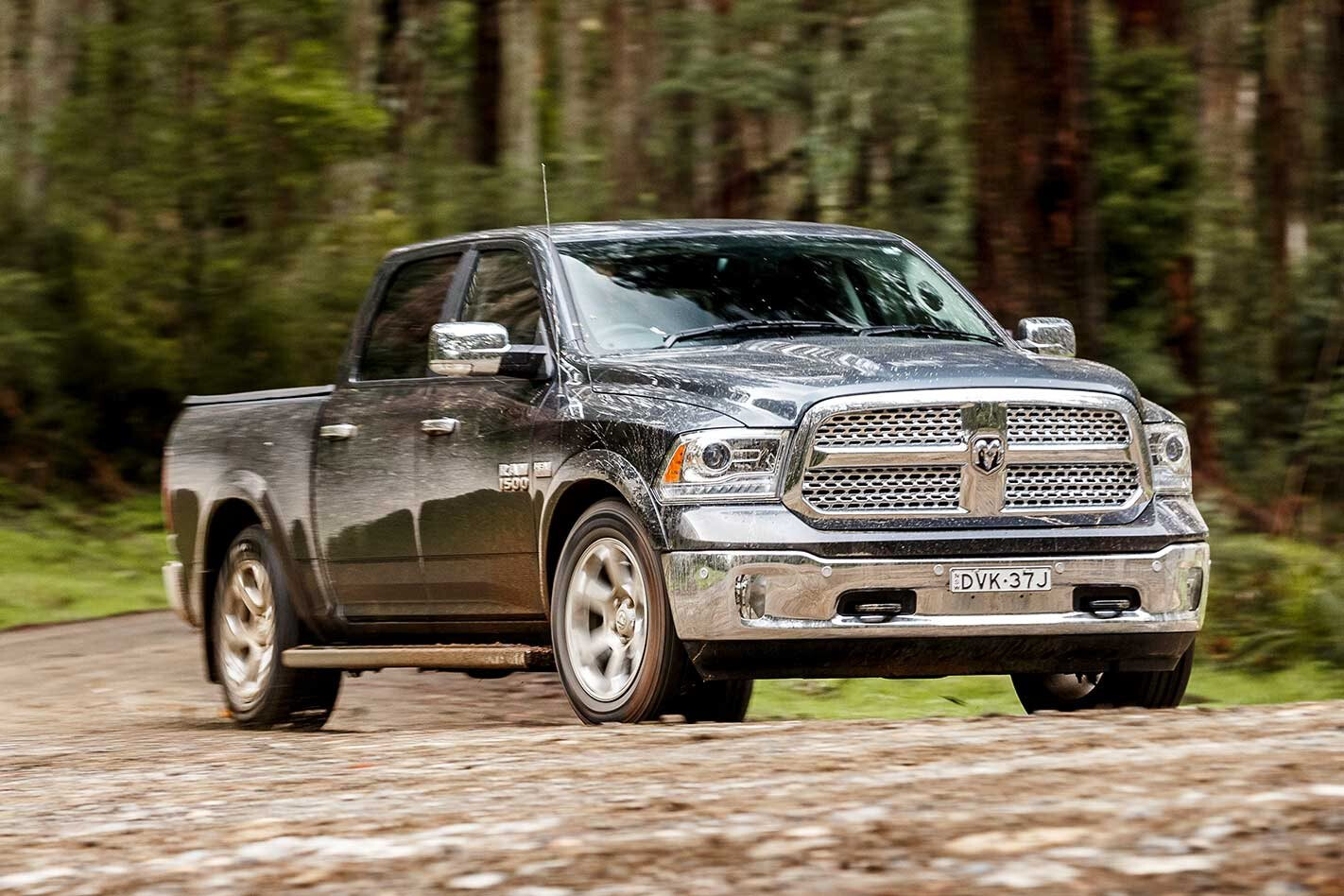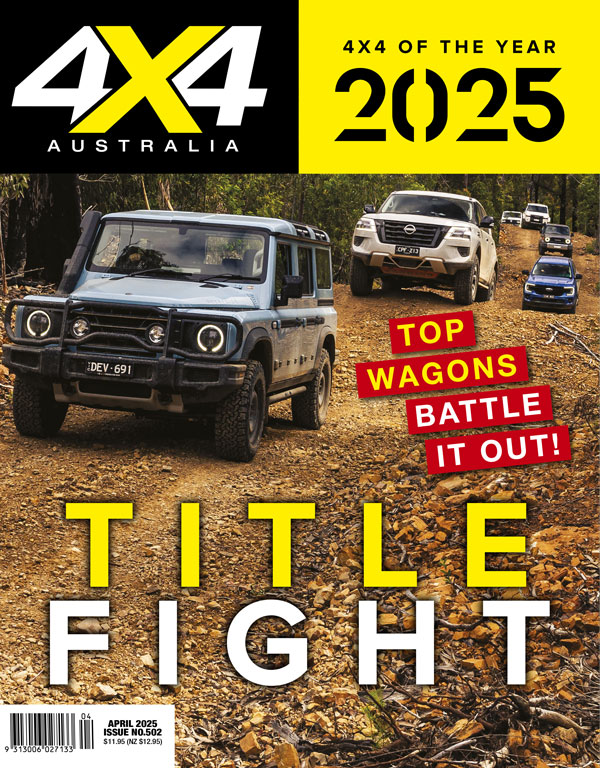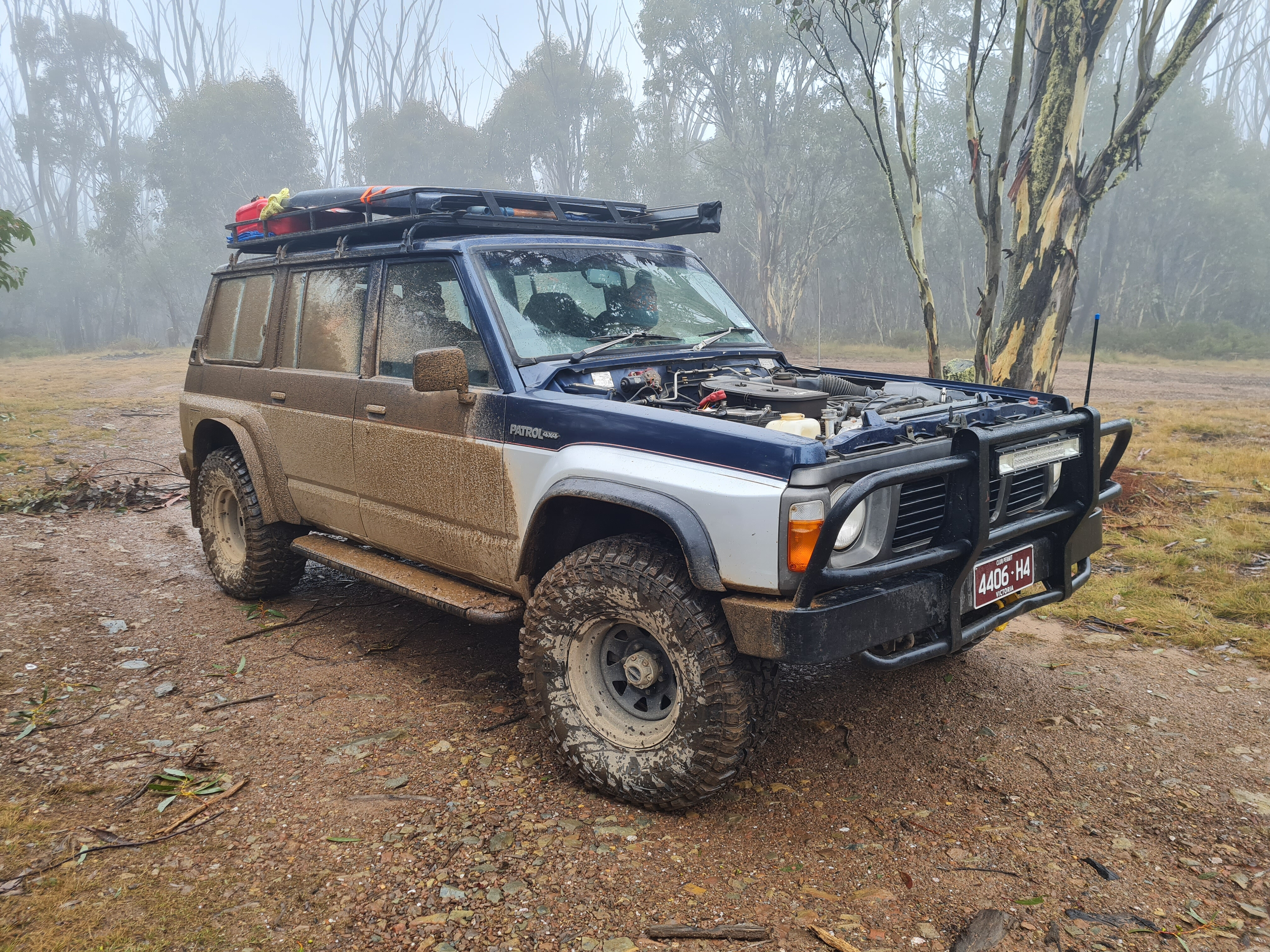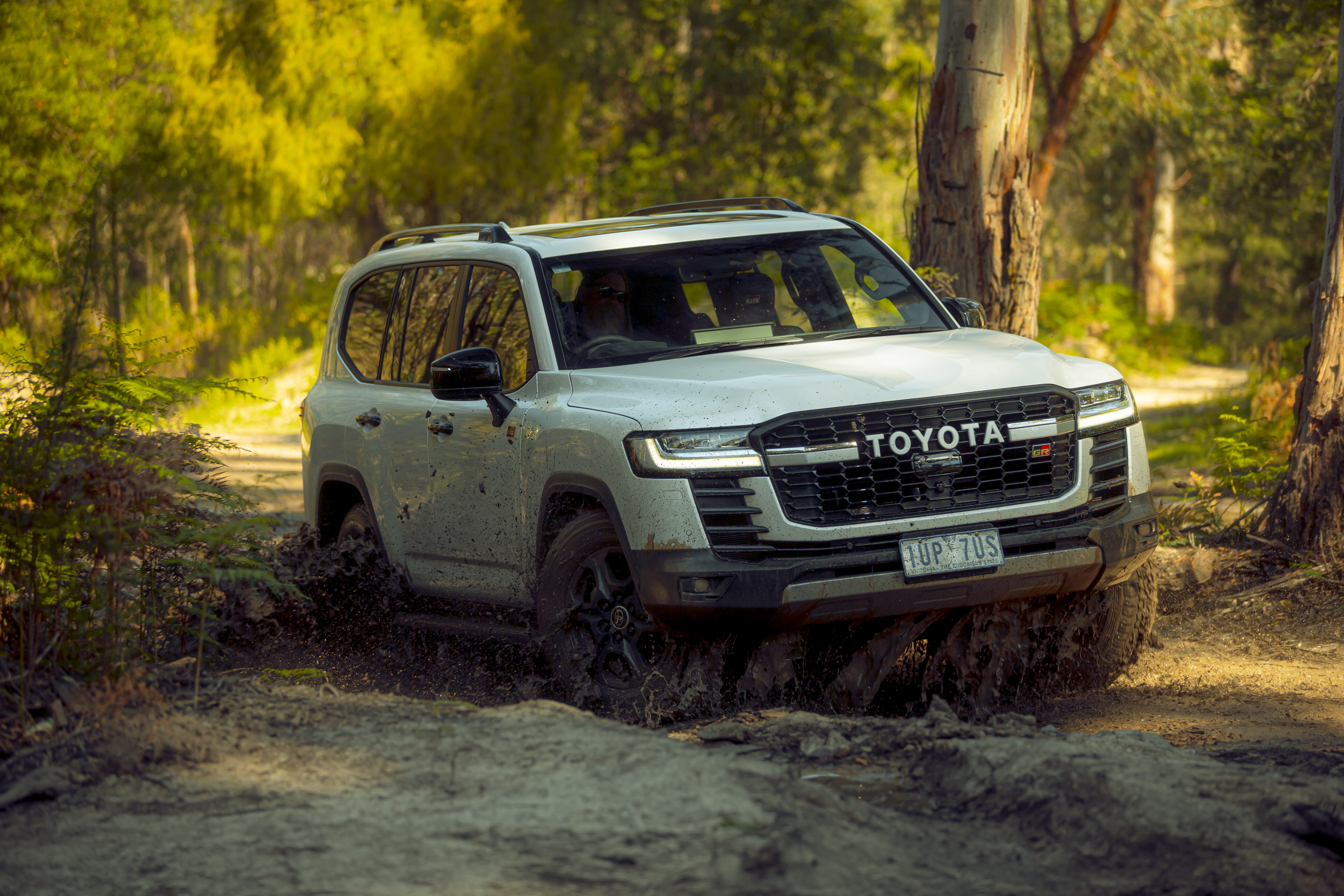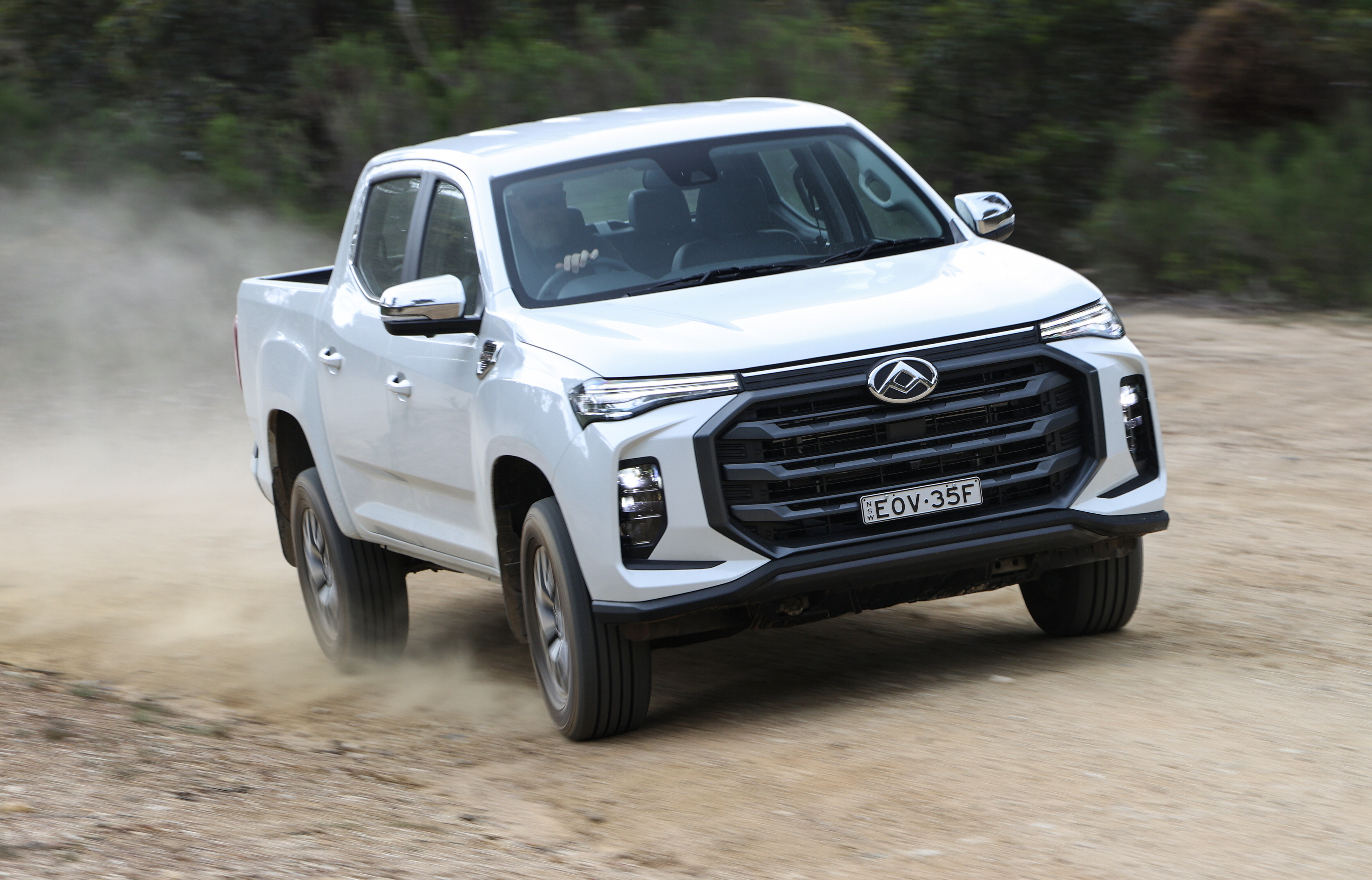JUST AS the popularity of double cab 4×4 utes in Australia has grown, so has the size of some of the more popular models. When Volkswagen launched its Amarok it was wider and roomier than the established players, and, subsequently, the Ford PX Ranger/Mazda BT-50 siblings, the Holden Colorado and, more recently, the LDV utes have all grown in size.
However, these are still only mid-size utes and are completely overshadowed by the full-size pick-up trucks from America. Unfortunately for Aussies, none of the full-size trucks are made in right-hand drive by the OE manufacturers, yet this has spawned an industry of small businesses importing, converting and marketing the trucks to those who want them and can afford to pay for the costly conversions.
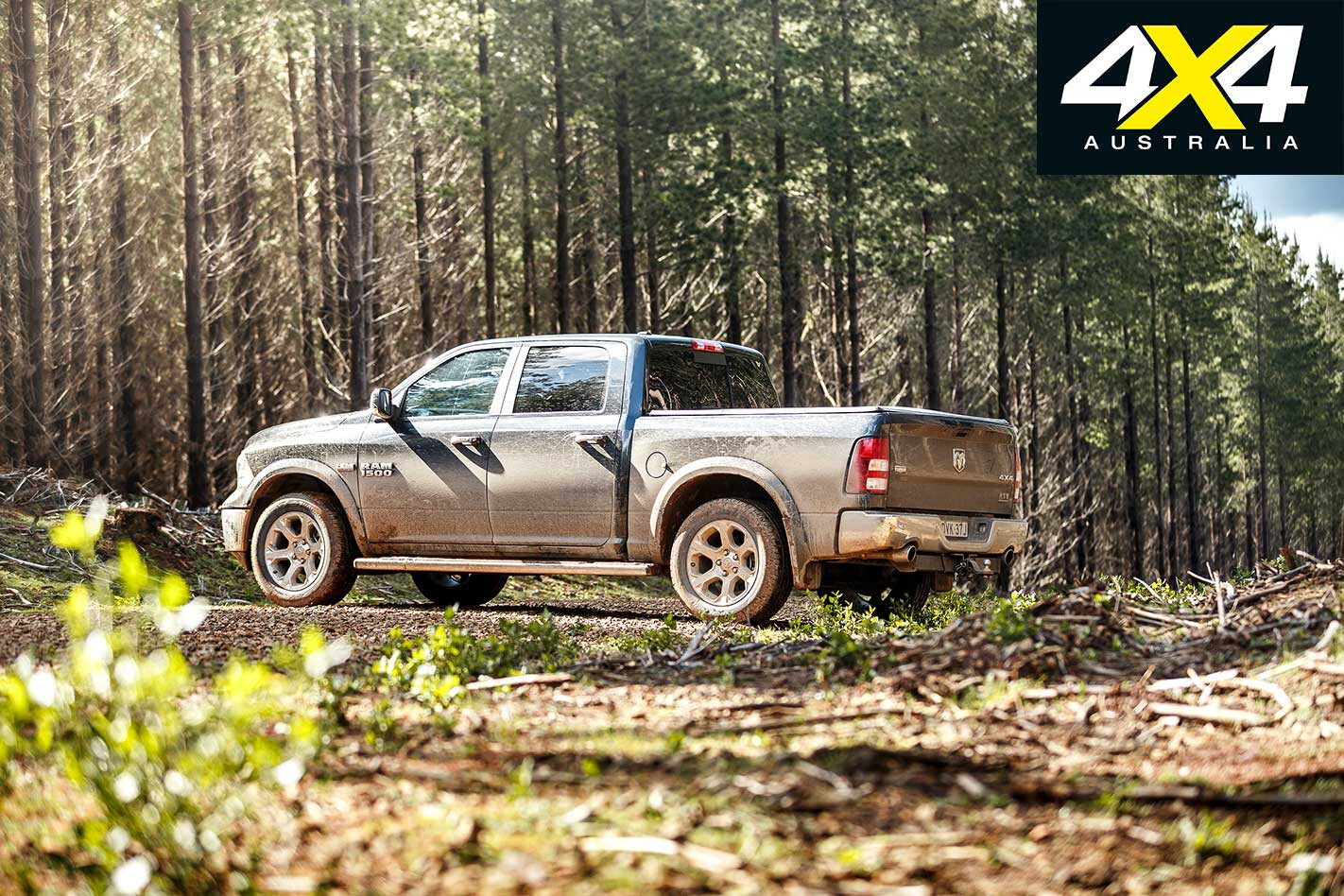
The import and conversion industry has picked up its game in recent times since importer/distributor Ateco Automotive struck a semi factory-backed deal to import RAM trucks and commissioned the Walkinshaw Group to do the conversions in a partnership it calls American Special Vehicles (ASV). Of note, Walkinshaw also imports and converts Chevrolet Silverado and Camaro vehicles under its own brand, HSV.
ASV started with the heavy-duty RAM 2500 and 3500 models as Ram Trucks Australia, and the latest addition to its local line-up is the lighter-duty RAM 1500. The 1500 is the same size as the 2500 and 3500 trucks, but it has different front sheetmetal and a different chassis and suspension setup, opting for independent front suspension (IFS) rather than the live axle found under the front of the HD models.
Another big difference between the RAM 1500 and the HD models is that, while the 2500 and 3500s are powered exclusively by a sublime 6.7-litre inline six diesel engine from Cummins, the 1500 is only offered with a 5.7-litre petrol Hemi V8 mill… for now at least. The VM Motori V6 diesel engine we are familiar with from the Jeep Grand Cherokee will join the Ram Trucks Australia line-up early in 2019.
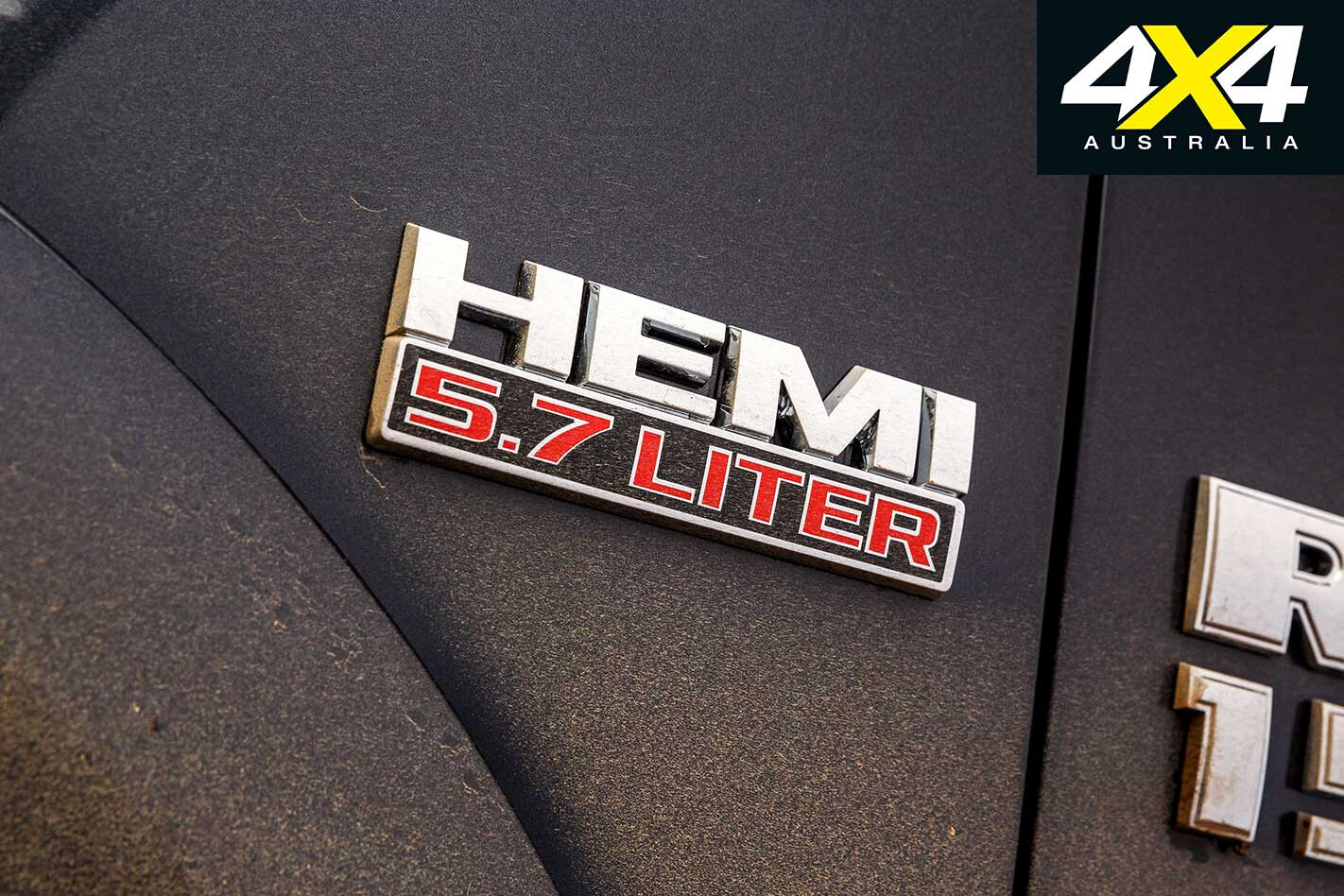
There’s another big difference between the RAM models, and that’s cost. Imported and converted American pick-ups have always been priced on the wrong side of $100K in Australia, and the 2500 and 3500 are up there in cost.
The RAM 1500 on the other hand can be had for as little as $79,950 in base-spec Express trim, while the upper-spec 1500 Laramie as tested here will set you back $99,950 – when bought through RAM Trucks Australia. There are other companies selling them here, but only the ASV RAMS are re-engineered by Walkinshaw to exacting OEM standards.
Powertrain & Performance
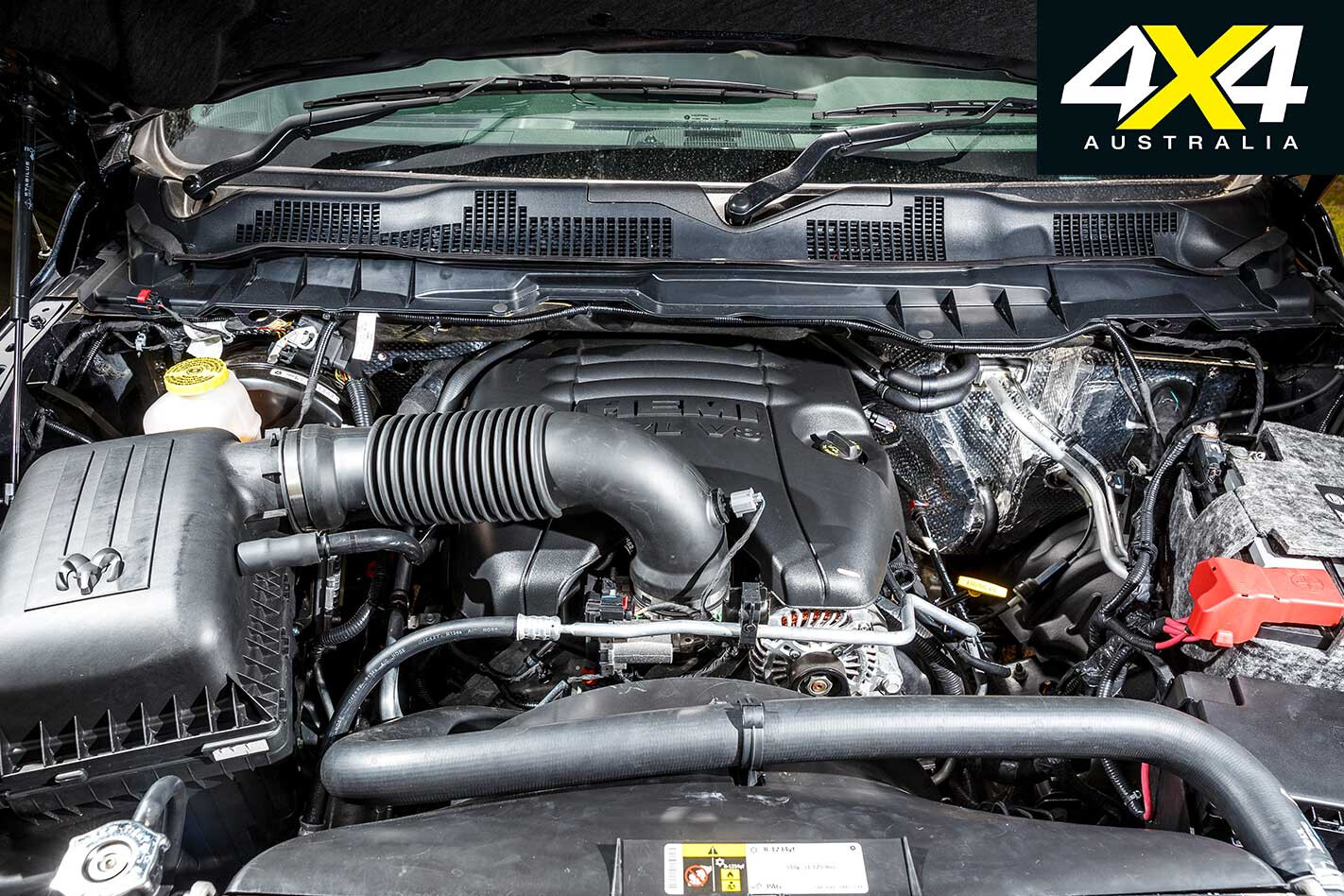
YOU MIGHT think a petrol V8 engine propelling a great lump of American pick-up is going to burn through fuel like dunny paper in an Indian diner, but the 1500 isn’t as bad as you’d imagine. ASV claims 12.2L/100km and we recorded 17.6 in a week of commuting, on- and off-road, all while unladen.
That’s about the same as we’d get out of a VDJ79 Land Cruiser over similar conditions, possibly even better, and the Hemi V8 goes and sounds a lot better than the Toyota diesel V8, plus it is a lot smoother and more refined.
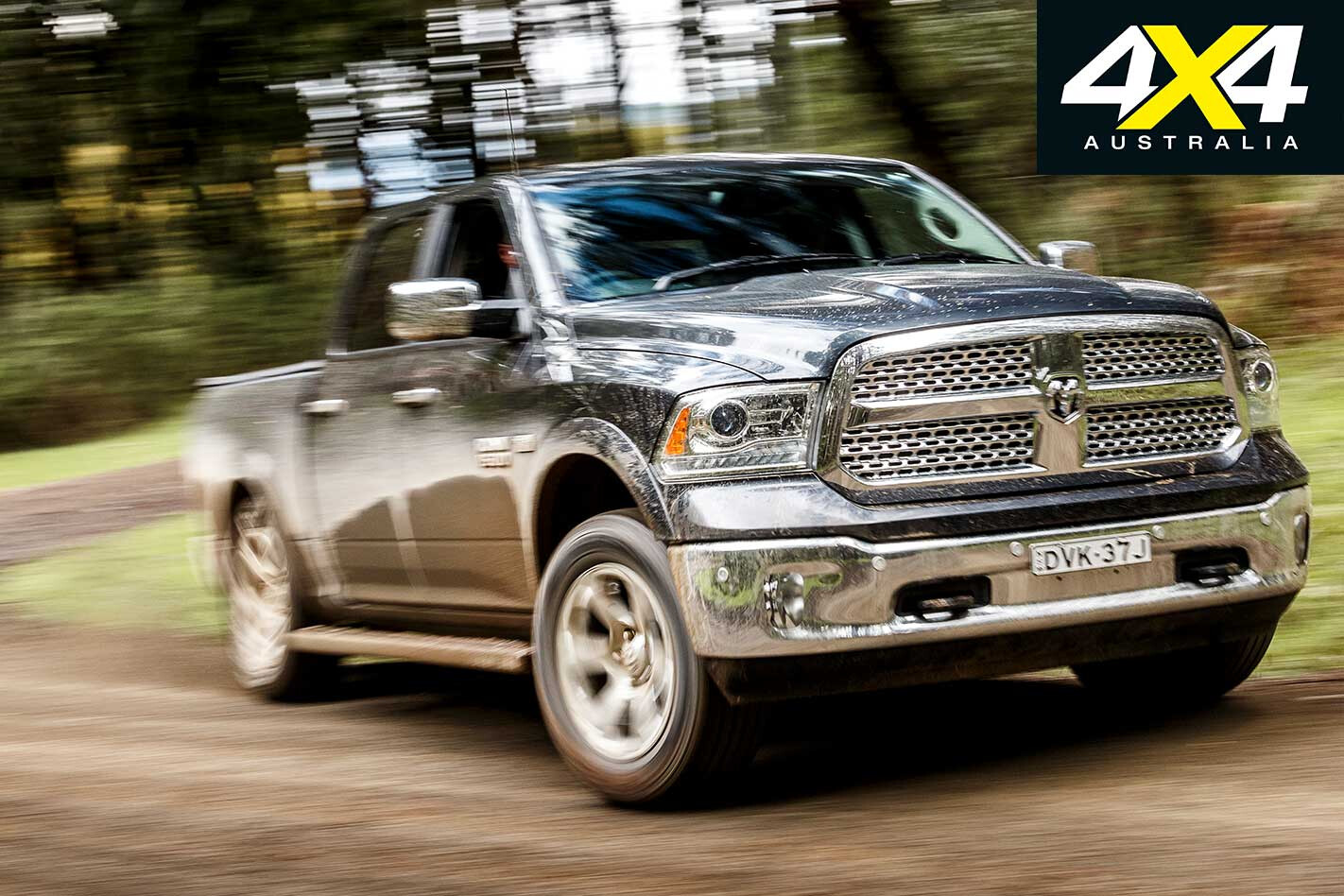
The 1500 we tested was fitted with a shorter 3.92:1 final drive ratio to give it a heavier 4500kg towing capacity. Standard is a 3.21:1 gear-set which limits towing to 3500kg but improves fuel usage to a claimed 9.9L/100km. Even with the shorter gearing, the V8 engine always felt relaxed and never busy at highway speeds.
The eight-speed auto is equally smooth and refined; though, its operation via a dash-mounted dial is less than ideal and downright annoying when doing multi-point turns on tight tracks.
On Road Ride & Handling
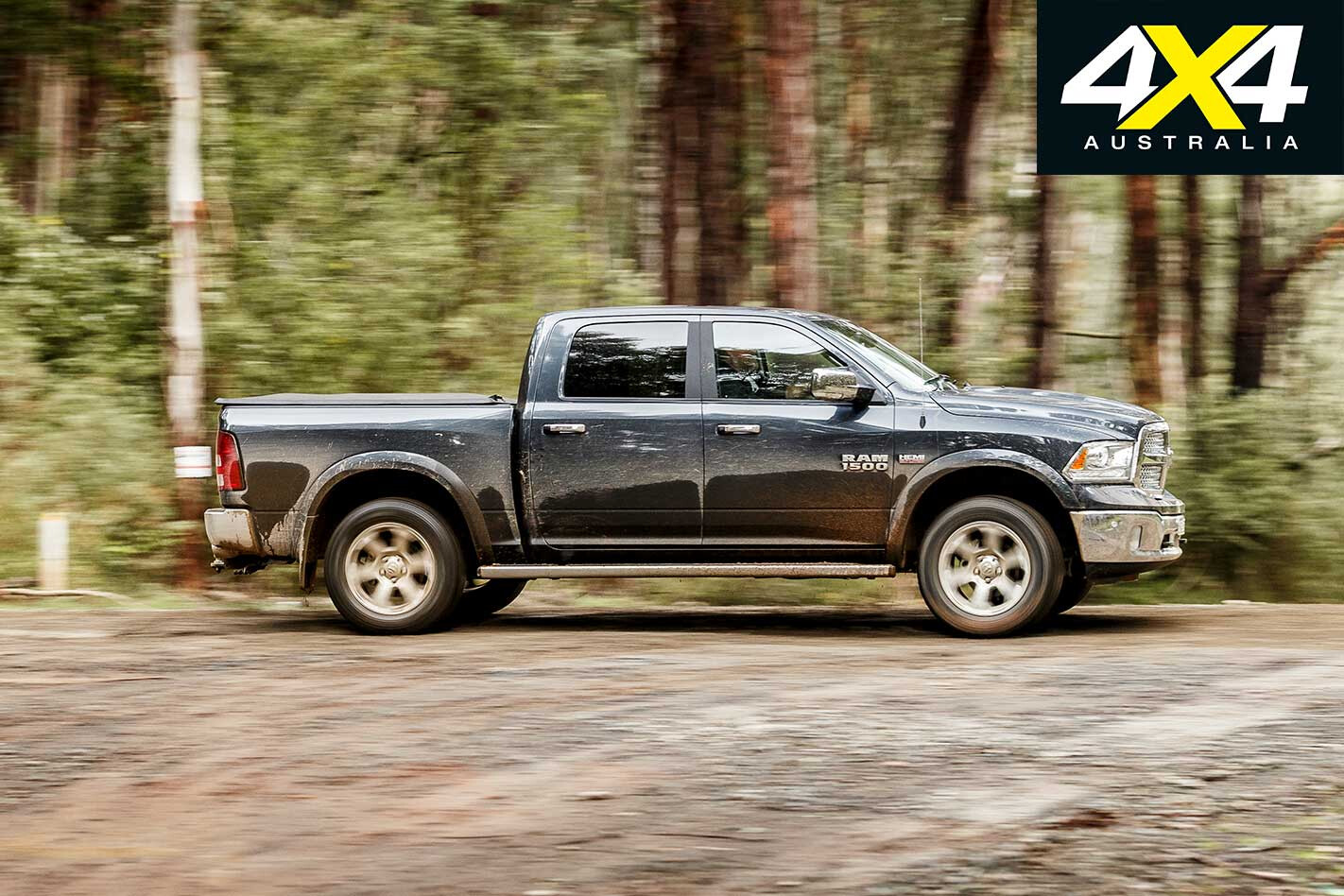
THE large, long wheelbase truck gives the RAM a plush ride that is neither too soft nor too hard – this is without towing or without a load in the bed. The RAM doesn’t feel as big to drive as the Silverado or F-Truck despite its similar size, and looking over the big bonnet it’s more like an LC200 than anything else.
The visibility is good and the RAM is easy to place on the road or track. The IFS of the 1500 helps here and when parking; it’s not always the easiest to get into the supermarket carpark, but it’s not impossible.
The RAM feels its best on the wide, open road where it tours in comfort and would easily eat up long kilometres. It’s not a truck you want to throw around in the twisties, but it doesn’t suck here either.
Off Road
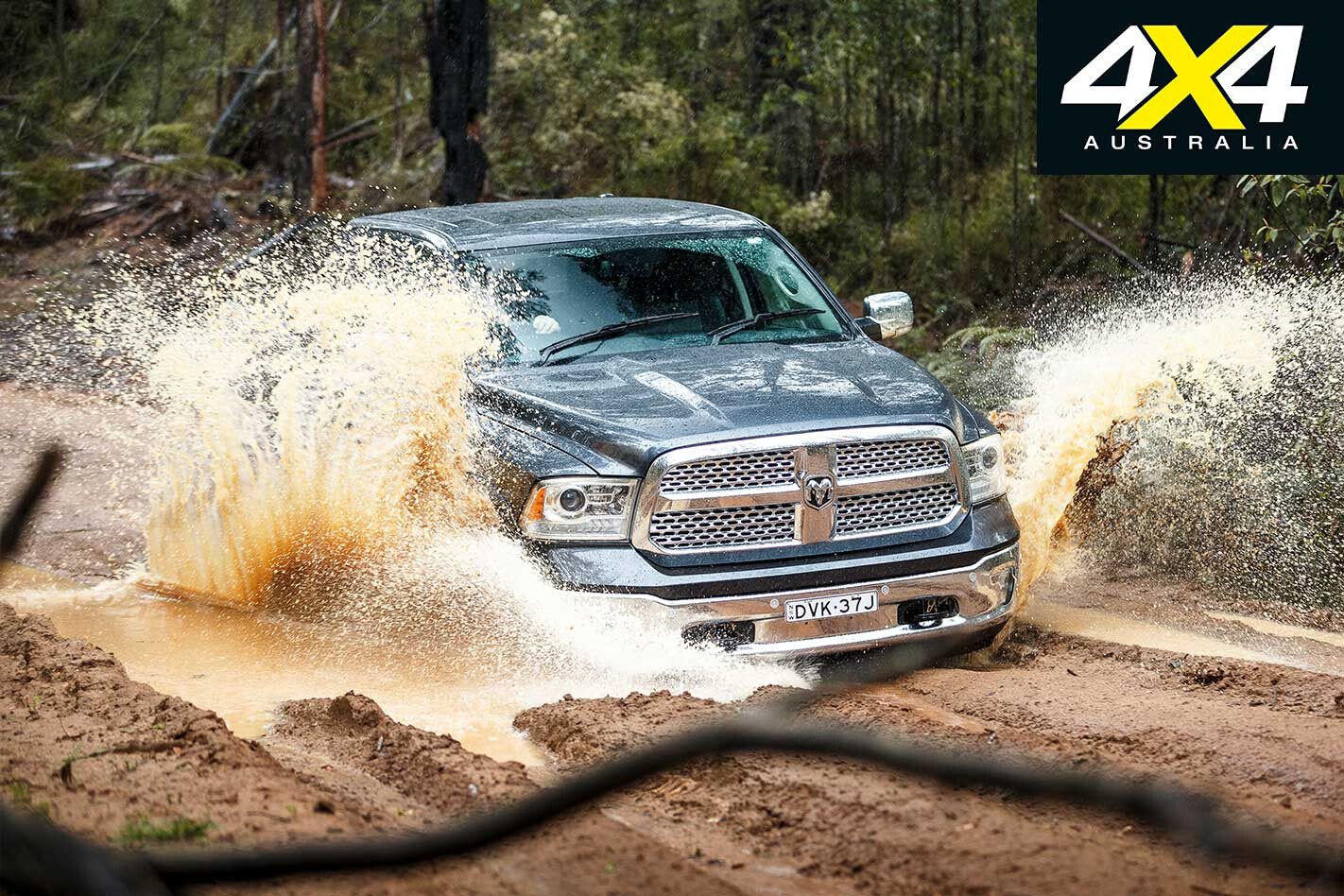
FULL-SIZE pick-ups are never great off-road, purely because of their size and turning circle. However, the 1500 with its IFS turns better than most and manoeuvred around the High Country tracks without too much trouble. It is low, though, and rampover clearance isn’t great, with the side steps touching down a few times on our trek. There were no such problems with the approach and departure angles.
With a locking centre diff providing locked high and low range the RAM tackles most terrain with relative ease. The on-demand transfer case offers 2WD, 4WD auto (on-demand), 4WD high (locked) and 4WD low (locked).
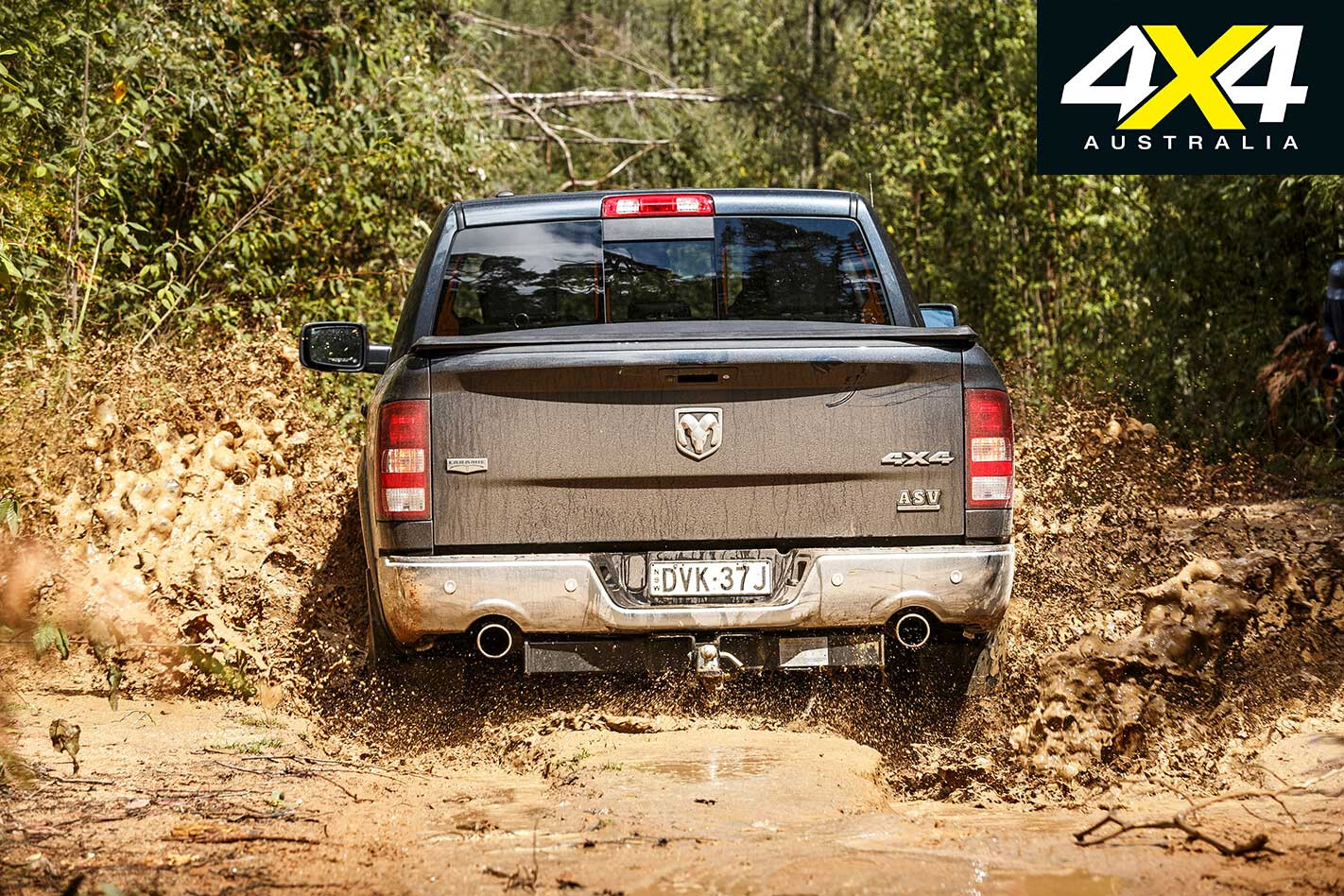
The auto setting worked well when touring on wet gravel roads, but when traction became marginal it was a bit slow and the RAM was better off in 4WD high (locked). The electronic traction control works fine, which is just as well as there are no additional traction aids such as locking rear or front diffs. The highway-biased tyres didn’t do it any favours and we slid down one particularly greasy, wet, clay slope.
Being so popular in the USA ensures there’s more aftermarket off-road kit available than you could ever use, so it should be relatively easy to tailer a RAM for specific off-road adventures.
Cabin & Accommodation
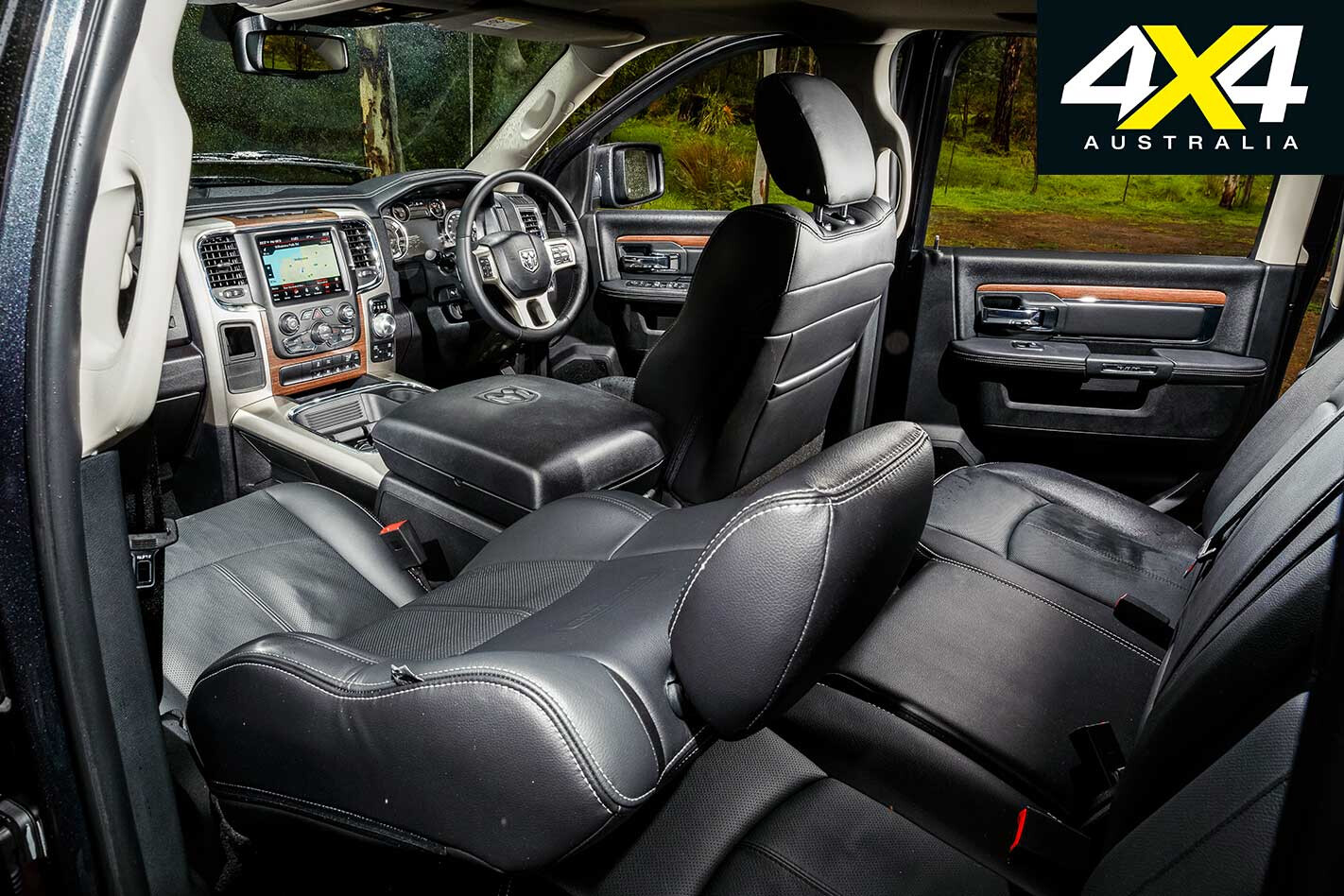
THE RAM’s cabin is big, comfortable and accommodating; although, it’s not as big as you might expect, and not as big as say a Silverado or F-Series.
Despite its multi-way electric adjustable seat, the driver’s position is quite snug, with my head rubbing on the roof lining (the electric sunroof doesn’t help here) and my boots cramped in the footwell. It’s like the Jeeps of the past where the transmission tunnel squeezes your boots to the right, and this may have a lot to do with the right-hand-drive conversion.
Across the cabin are acres of shoulder room, plenty of space for the passenger, and a console you could house a small family in. Likewise in the rear seat, where passengers are treated to space that no one-tonne ute offers.
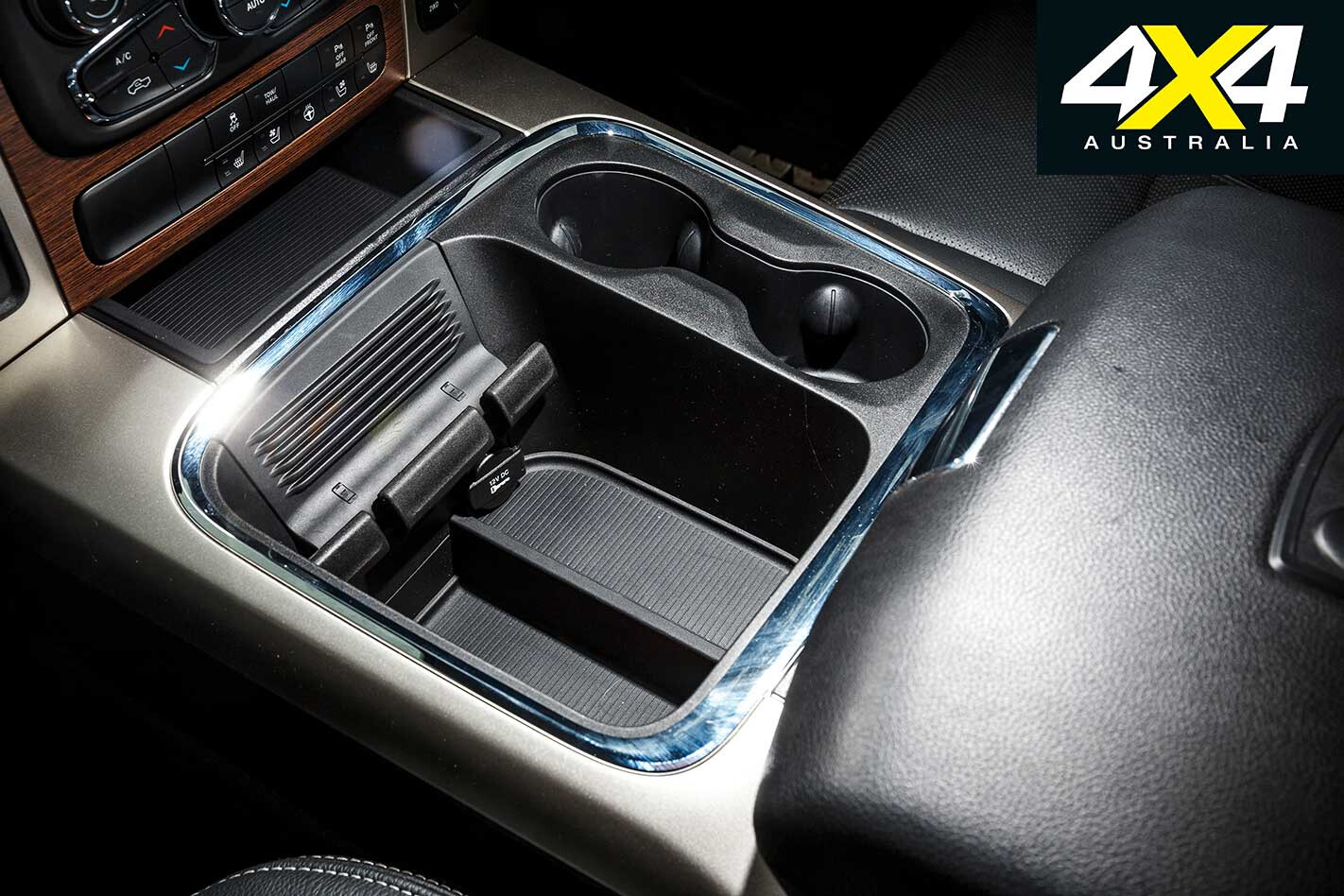
There are myriad clever storage spaces under the seat that are accessible when it’s folded up. Cleverly, when folded, there’s a flat platform that unfolds to provide a better surface to carry cargo.
The Laramie’s cabin is well-equipped and the seats are soft, leather-trimmed, and heated and cooled in the front (just heated in the back). The large centre screen uses the familiar Uconnect interface with factory navigation, Apple CarPlay and Android Auto integration. It all adds up to a great place to ride and perfect for long trips.
Practicalities
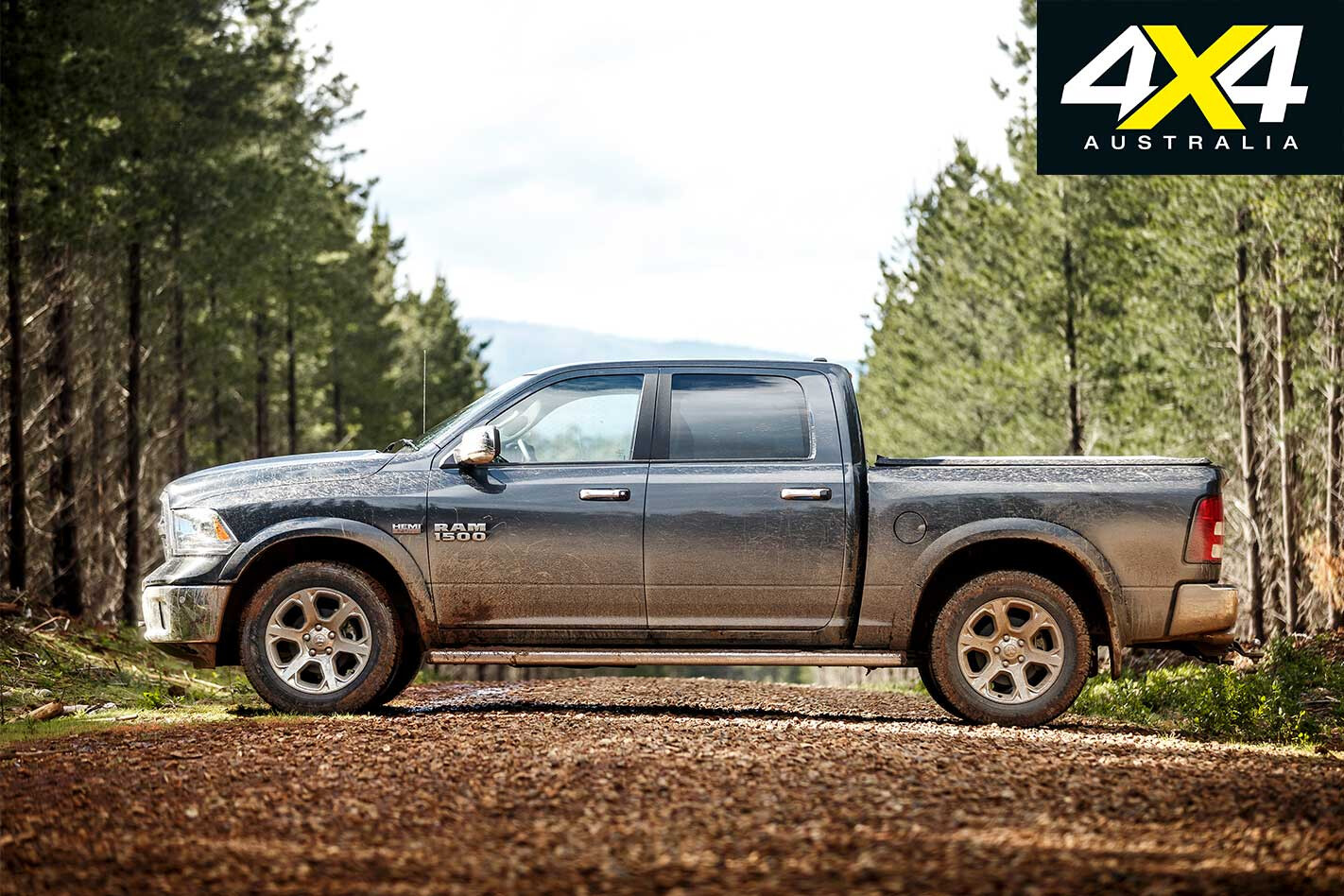
THE RAM’s size and capacities make it a very usable weapon, and the massive range of aftermarket accessories available for it means you can customise it to suit your purposes. A snorkel is one of those aftermarket products, while the standard air-intake is behind the headlight. There’s not much room in the engine bay for a second battery, so it will have to live elsewhere if you plan to fit one.
The 20-inch wheels might be big by regular car standards, but this is a common size for trucks in the USA, so there are plenty of options there. For recovery, there’s a pair of large tow hooks in the front bumper and a tow hitch at the back – the 4500kg towing capacity makes it very usable.
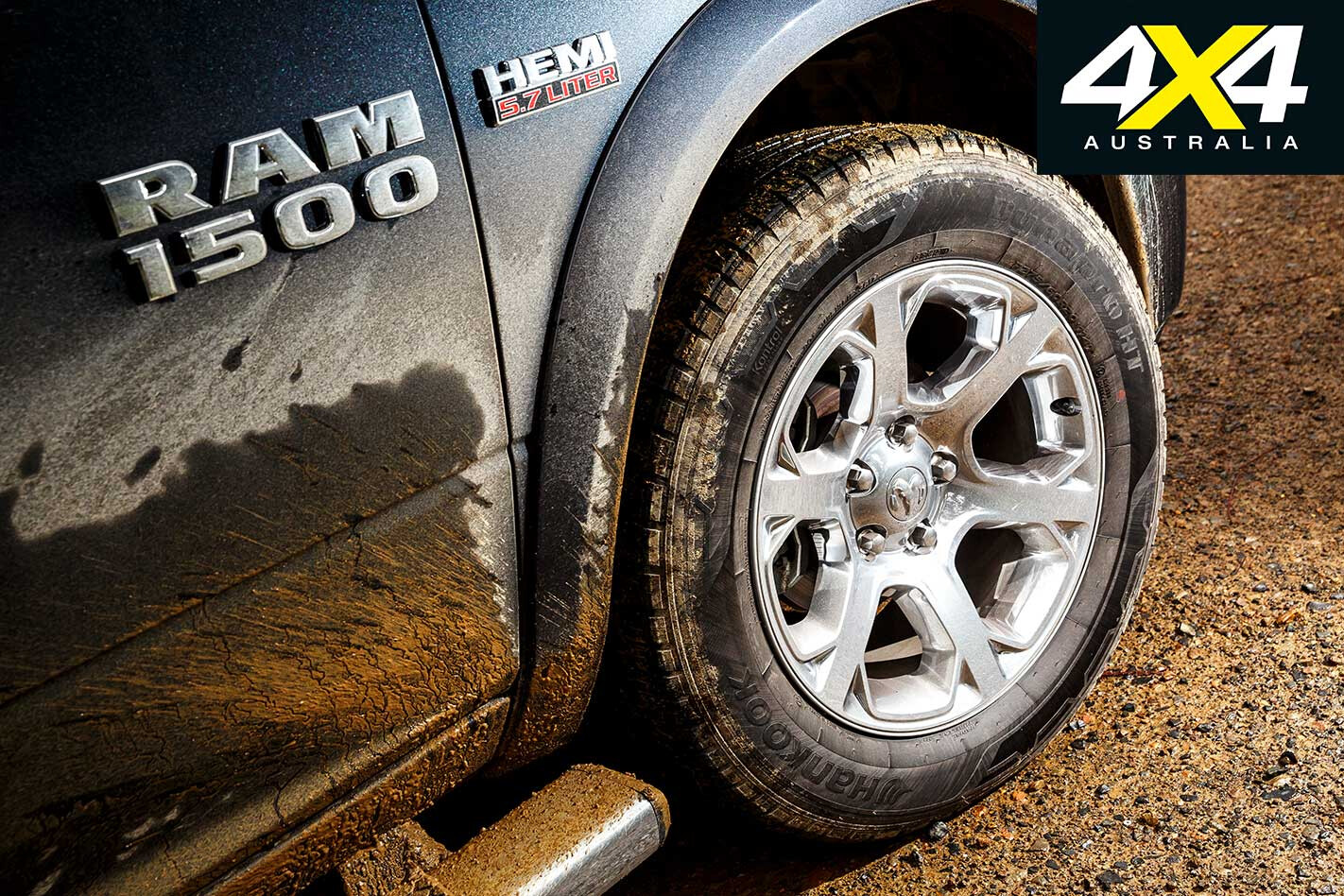
The only load we carried in the 1500 was a 400kg hay bale, which we ferried around on a farm, and the RAM didn’t even feel its weight. In the tub is a heavy-duty spray-on liner to protect the metal and tie-down loops, plus the Laramie we drove had an optional folding soft tonneau cover.
There are heaps of storage options in the cabin for all manner of items, and for even more storage there’s the clever RamBox option which opens up the sides of the load tub.
Summary
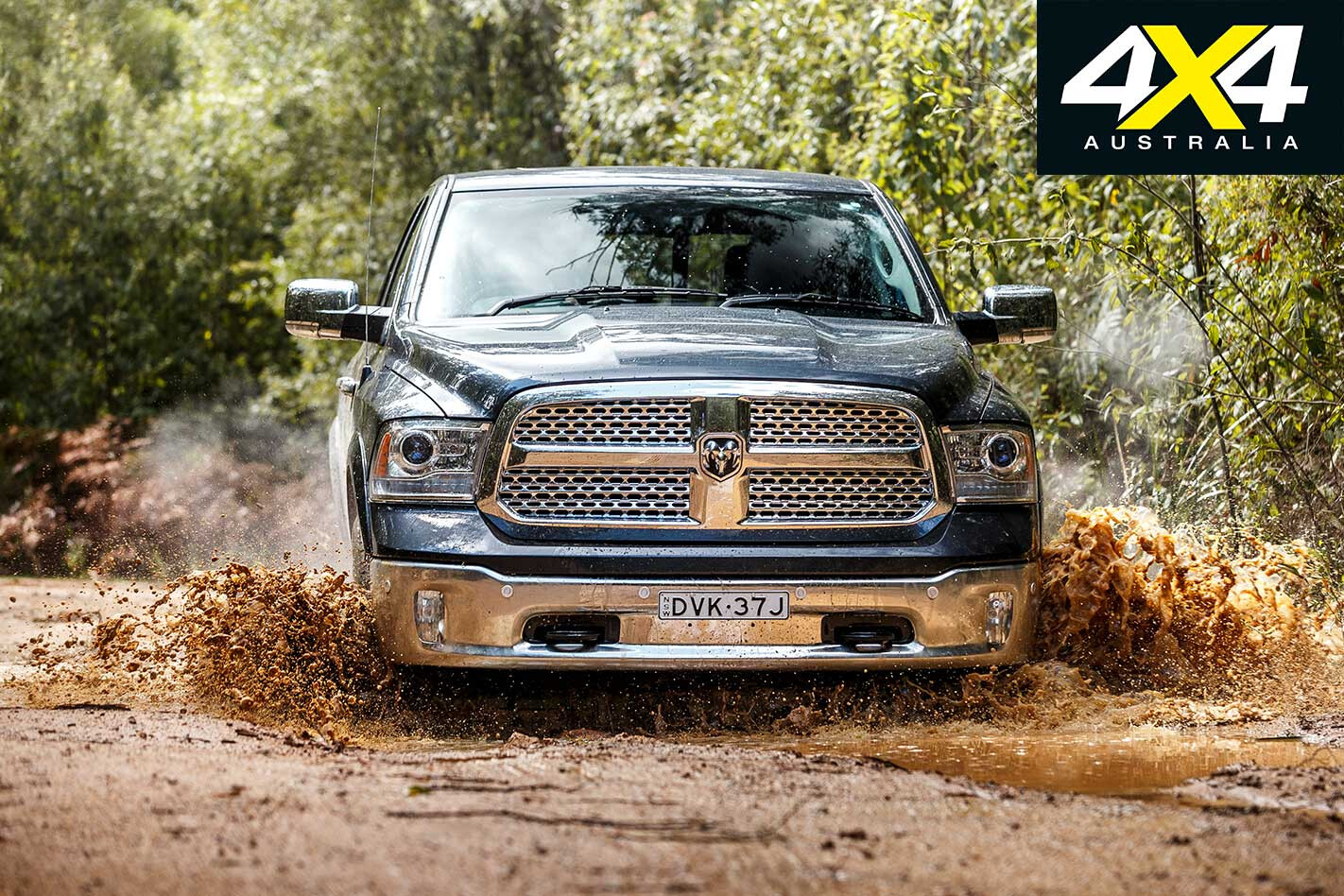
THE RAM 1500 is an easy and practical truck to live with, and for less than $100K there’s nothing else that can match its capacity, ability and presence on the road. Whether in town or out on the land, the 1500 makes a great workhorse, but it’s an even better touring vehicle that eats up road miles regardless of the road surface.
Fuel usage from the Hemi V8 is not as bad as some would expect, but there’s no doubt the availability of the V6 diesel will make the RAM a lot more appealing to more buyers when it gets here next year.
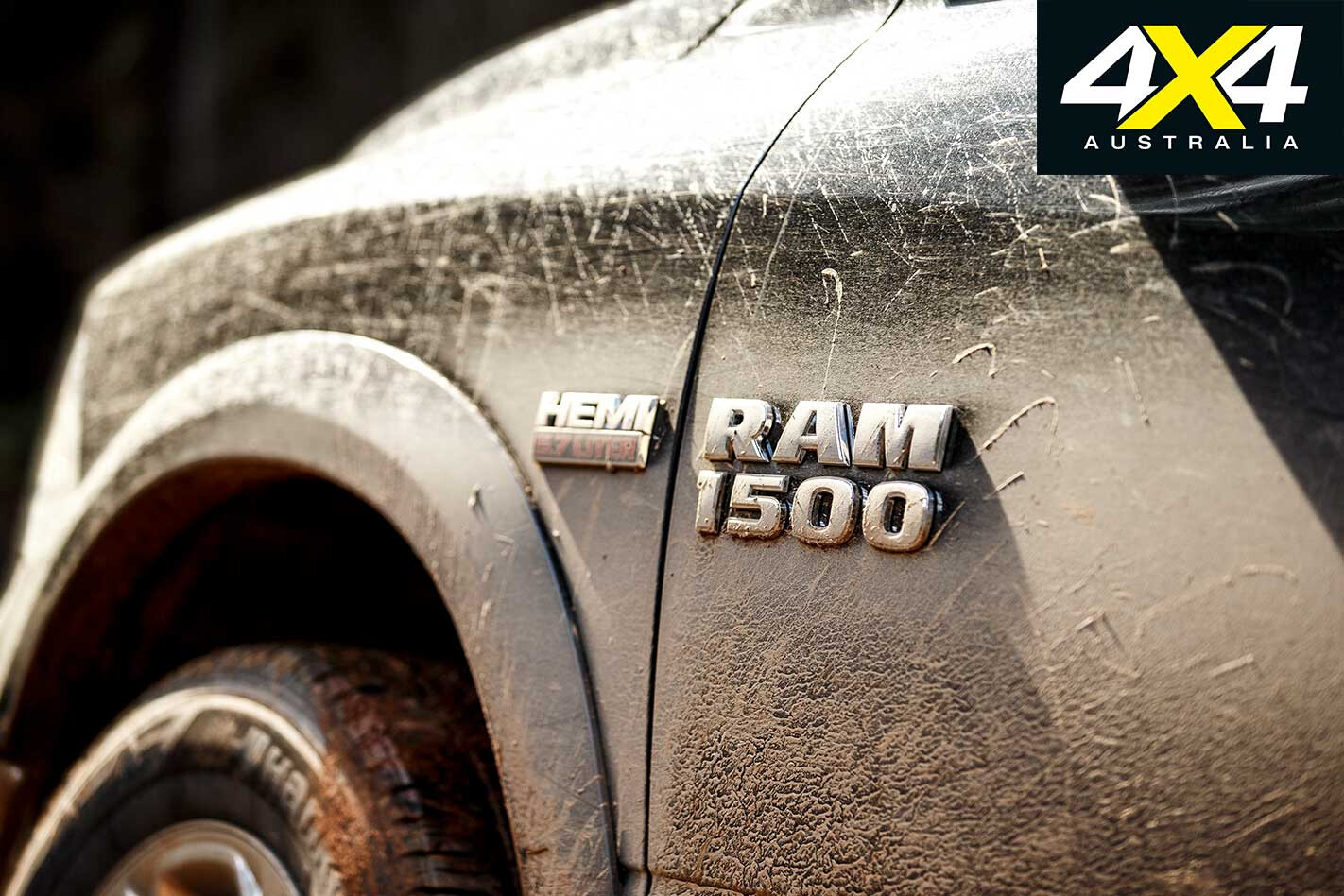
2018 RAM 1500 LARAMIE SPECS: Engine: 5654cc OHV petrol V8 16-valve Max power: 291kW at 5600rpm Max torque: 556Nm at 3950rpm Transmission: 8-speed automatic Crawl ratio: 48.74:1 4×4 system: On-demand 4WD with low range Construction: 4-door cab and tub on ladder chassis Front suspension: IFS with wishbones + coil springs Rear suspension: Live axle with coil springs + 5-link Wheel and tyre: 20-inch alloys with 275/60R20 HT tyres Kerb weight: 2650kg GVM: 3450kg Payload: 800kg Towing capacity: 4500kg (with 3.92:1 final drive) Departure angle: 24.4° Rampover angle: N/A Approach angle: 17.8° Wading depth: N/A Ground clearance: 219.5mm Seating capacity: 5 Fuel tank capacity: 98L ADR fuel consumption*: 12.2L/100km On-test fuel consumption: 17.6L/100km
*Australian Design Rule ‘Combined-Cycle’ claim


